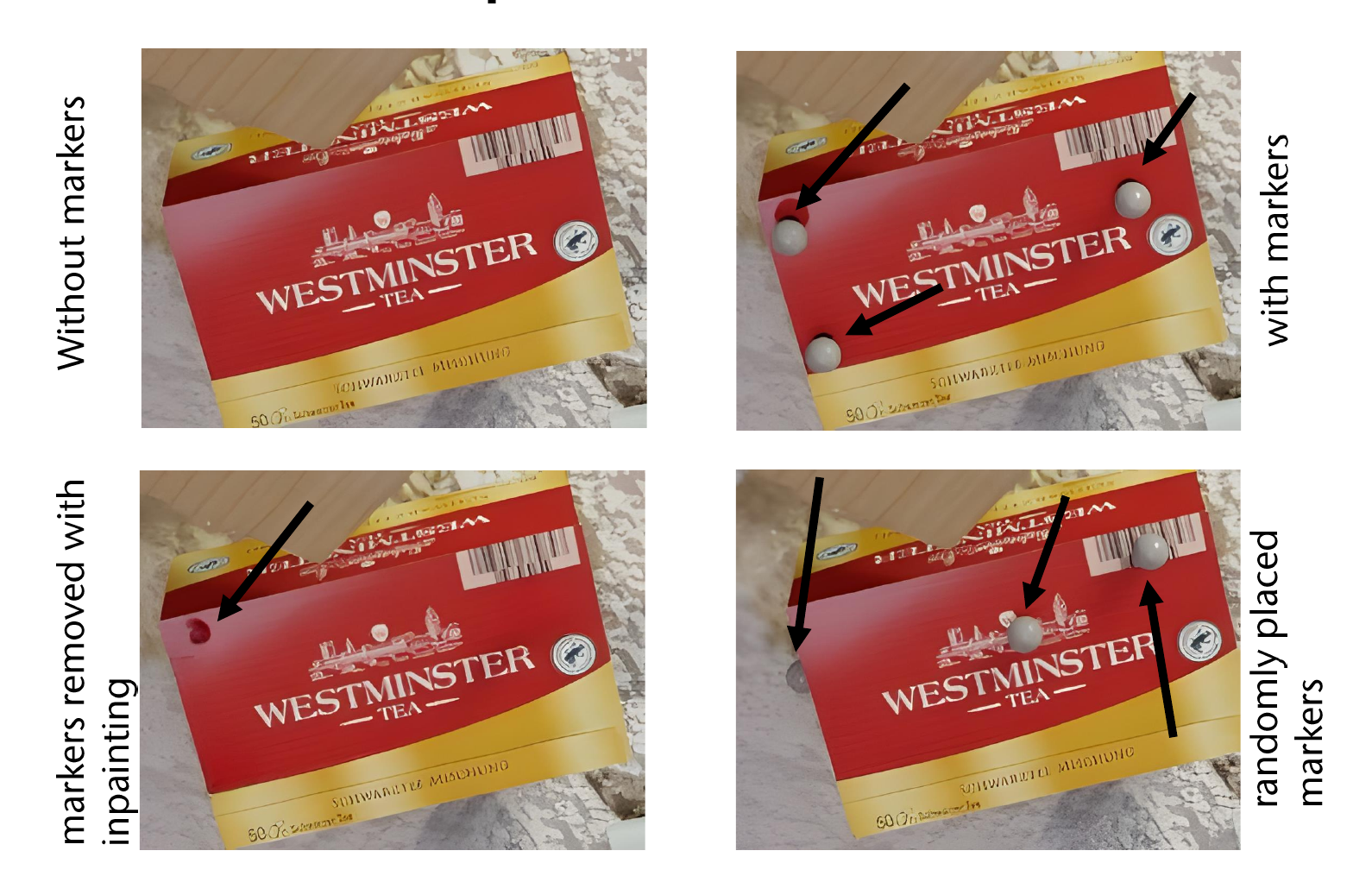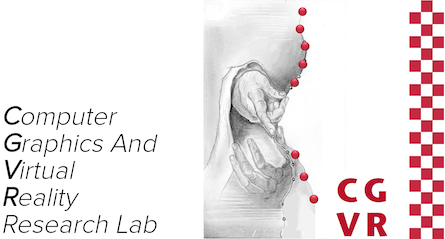Training Data for 6D Pose Estimation
Collecting training data for pose estimation methods on images is a time-consuming task and usually involves some kind of manual labeling of the 6D pose of objects. This time could be reduced considerably by using marker-based tracking that would allow for automatic labeling of training images. However, images containing markers may reduce the accuracy of pose estimation due to a bias introduced by the markers. In our paper, we analyze the influence of markers in training images on pose estimation accuracy. We investigate the accuracy of estimated poses by comparing with the markerless baseline. We demonstrate that utilizing marker-based techniques is an effective strategy for collecting large amounts of ground truth data for pose prediction without loss of performance. For more details, we refer to the paper.

If you want to contact us, please write a mail to Janis Rosskamp: j.rosskamp at cs.uni-bremen.de

